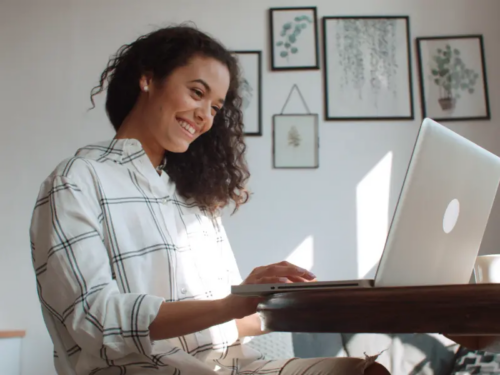
Table of Contents
5 Reasons to Try Charlie Health’s Intensive Outpatient Program for Depression
Written By: Charlie Health Editorial Team

Clinically Reviewed By: Dr. Don Gasparini
Updated: September 2, 2025
6 min.
If inpatient care feels like too much but you want more than once-weekly therapy to manage depression, an IOP for depression could be what you need. Read on to learn more.
Learn more about our Clinical Review Process
Table of Contents
Depression is one of the most common mental health conditions in the world, affecting over 332 million people across the globe. Without treatment, major depressive disorder can take a serious toll on your well-being, disrupting your ability to function, let alone enjoy life. Fortunately, depression is highly treatable, with most treatment plans including talk therapy, medication management, or a combination of the two.
However, some people with moderate to severe depression might need additional support if they aren’t experiencing relief from traditional once-weekly outpatient therapy. In these cases, you might consider an intensive outpatient program, or an IOP, for depression. Whether you or your loved one is seeking additional mental health support to manage depression, here’s everything you need to know about an IOP for depression.

We offer a virtual Intensive Outpatient Program for depression
Treatment for moderate to severe depression from the comfort of home.
What is an IOP for depression?
An intensive outpatient program (IOP) is a structured, intensive mental health program that consists of multiple hours of therapy programming, multiple days a week. This treatment option allows people to maintain their routine (such as going to work or school) while receiving more intensive support, but it doesn’t offer round-the-clock care like inpatient treatment or a residential treatment program. This makes it suitable for people who are struggling with their mental health but aren’t in a high acuity mental health crisis.
Plus, IOPs differ from traditional outpatient therapy in that group sessions play a major role in the program. “Combining daily group sessions with weekly individual therapy visits provides a consistent structure and presentation of therapy, peer support, and education,” says Brooke Cortez, MSW, MT-BC, NMT, a Charlie Health Creative Arts Therapist. “This helps clients to learn and practice new skills while feeling connected to others.”
IOPs can help address many serious mental health conditions, including depression. People with depression commonly have another co-occurring disorder. It’s important to treat not only the depression, but also other disorders, for a full recovery. Plus, when symptoms of other disorders are left untreated, they can further contribute to depressive symptoms.
An IOP can also address:
- Anxiety disorders (like generalized anxiety disorder, panic disorder, and social anxiety disorder)
- Post-traumatic stress disorder (PTSD)
- Substance use disorders (SUD)
- Eating disorders
- Obsessive-compulsive disorder (OCD)
- Personality disorders
Who is the right fit for an IOP for depression?
IOPs are ideal for people with moderate to severe depression who need more support than those with mild depression symptoms. While people with milder depression may see sufficient results from weekly therapy, those with more severe symptoms or treatment-resistant depression may not see desired results or symptom reduction from traditional outpatient care.
Additionally, intensive outpatient treatment can serve as a step down from more intensive care. “Clients who attend IOP programs often do so after being in inpatient care, and the IOP acts as a stepping stone to less structured and intensive treatment,” says Beth Couture, MSS, LSW, a Charlie Health Experiential Therapist.
Ultimately, the best way to determine if an IOP is right for you is by consulting with a mental health professional, who can assess your symptoms and level of functioning to recommend what level of support is ideal for you.

How long does an IOP for depression last?
IOPs for depression are highly personalized, and their duration can vary significantly — but they typically last anywhere between several weeks to a few months, Couture says. According to Couture, factors influencing the length of treatment include:
- The severity of the depression
- The presence of any co-occurring disorders
- The strength of the client’s support systems
- The client’s progress
“More severe depression often requires a longer treatment period, and co-occurring disorders can also extend the time an individual spends in an IOP program,” she says. “Strong home support systems can help facilitate a smoother transition out of the program, potentially affecting the duration as well.”
What is the structure of an IOP for depression?
“A typical weekly IOP schedule involves between 9 and 15 hours a week of treatment, which includes group, individual, and, depending on client preference, family therapy sessions,” Couture says. “These hours are often split into 3 to 5 sections of 3 or 4 hours each.”
The structure and schedule will ultimately depend on the specific treatment program you enroll in. However, in addition to individual therapy, you will have multiple group sessions that can focus on skill building or specific therapeutic modalities, Couture says. Some examples of evidence-based treatment modalities you might have in groups include:
- Cognitive behavioral therapy (CBT)
- Dialectical behavior therapy (DBT) skills
- Attachment-based therapy
- Trauma-informed therapy
- Internal family systems
- Exposure therapy
- Music and art therapy
- Dance & movement therapy
- Drama therapy
- Yoga, mindfulness, and meditation
Depending on your needs, an IOP may also offer medication management to prescribe and monitor medications to manage your depression symptoms and symptoms of any other co-occurring disorders.
What are the benefits of an IOP for depression?
For many people with depression, an IOP provides the right level of support without putting life on hold. Here are four main benefits of an IOP for depression treatment.
1. Consistent support
Consistency is key, Cortez says. Receiving treatment multiple days of the week allows for continuous reinforcement of what you’re learning in therapy, regular monitoring of symptoms, and opportunities to address challenges as they arise, instead of waiting a week between sessions to do so.
2. Social connection and peer support
In an IOP, group programming is a cornerstone of treatment, giving people a valuable opportunity to connect with others who are dealing with similar mental health struggles. While healing from any mental health condition, connection is crucial and even improves treatment outcomes.
“Clients can share their personal stories, as well as hear those of peers. This fosters relatability and support amongst its members,” says Cortez. “Peers share thoughts and ideas with each other to help with problem solving, building self-esteem, and establishing trust and honesty, as well as a sense of community.”
3. It fits into your schedule
With IOPs, you won’t have to uproot your daily routine to spend time at a treatment facility, which can be disruptive and further exacerbate feelings of stress and isolation associated with depression.
“IOPs are ideal for the treatment of depression because they offer a balance between the freedom of outpatient therapy and the intensity of inpatient care,” Couture says. “IOPs are less disruptive to clients’ lives than inpatient stays, as they allow clients to continue to attend work and school and continue to participate in social and leisure activities.”
Additionally, many IOP programs offer evening IOPs or weekend hours to accommodate people’s work and school schedules, Couture adds.
4. You can practice skills in real time
“Clients in IOP programs are able to practice the skills they learn in their groups in real-world scenarios, which helps them to feel more confident with what they are learning and see the progress they are making in real time,” Couture says.
For example, you can try applying coping skills you’ve learned, such as challenging negative thoughts, in your everyday life. Then, bring those experiences back to your next session to reflect on your progress, troubleshoot challenges, and build on what’s working.
When to consider a higher level of care than an IOP
In some instances, people may need to consider a more intensive level of care than intensive outpatient treatment, such as inpatient or residential care. Cortez says scenarios that warrant higher levels of care include:
- If you are a danger to yourself or others
- If you are experiencing any sort of severe cognitive changes, like confusion or psychosis
- If you’re experiencing major behavioral changes such as aggression
- If you’re abusing substances
If you are in immediate danger, it’s important to reach out for help ASAP. You can call the 988 Suicide & Crisis Lifeline 24/7, 365 days a year.

Charlie Health’s IOP for depression
If you’re ready to seek more intensive mental health treatment for depression, Charlie Health can help. We offer a fully virtual Intensive Outpatient Program (IOP), available for ages 8-64, which allows flexibility and treatment from the comfort of your own home.
Unlike other programs, we don’t just treat the symptoms of depression (and other mental health conditions). Rather, we focus on treating the whole person to promote holistic, long-term healing and improved well-being overall. Ready to get the support you need? Fill out the form below to start healing today.
References




